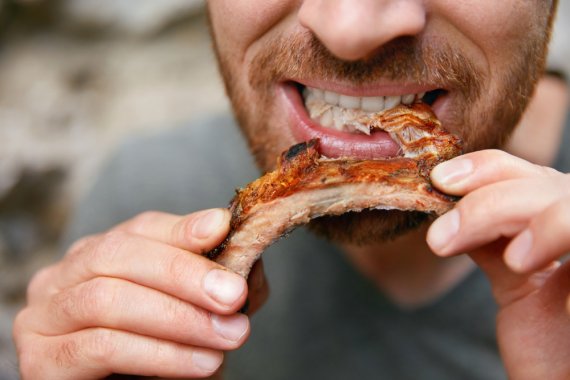© Shutterstock
In 2017, the Dutch consumed around 38 kilogrammes of meat per capita of the population, just as much as they did in the two years before. As such, the average Dutch person eats much more meat than the Health Council of the Netherlands advises in its Guidelines for a healthy diet (25 to 26 kilogrammes per year).
‘This is remarkable’, says consumption sociologist Hans Dagevos of Wageningen Economic Research, one of the researchers involved. ‘Because there is a lot of focus in society and the media on lowering meat consumption. And the Dutch have indicated in various surveys that they are trying to eat less meat.’
Discrepancy
Dagevos does not have a simple answer for this discrepancy. ‘We do know that when people say they want to eat less meat, it does not automatically mean that they actually do so.’ Moreover, it is possible that eager meat eaters compensate for the people who eat less meat. ‘This creates a divide with a group that eats meat in larger quantities or more often and thus nullifies the effect of the flexitarians and vegetarians.’ A third possibility is that there is a “self-licensing effect” at play. ‘It means that you reward yourself for doing something “good”. So, as a flexitarian for example, you might not eat meat for several days, and then compensate on the other days by eating a bit more.’
RIVM also recently investigated meat consumption. That study showed that meat consumption fell by 8 per cent in the Netherlands between 2007 and 2016. The different outcomes are possibly due to differences in the methodology and the fact that RIVM looked at a different period to the WUR study.
Additional reading (partly in Dutch):
Nederlanders eten evenveel vlees als in 2005
Soundbites: Vleesloze Week is onzin
Student researches vegetarian options in canteens

